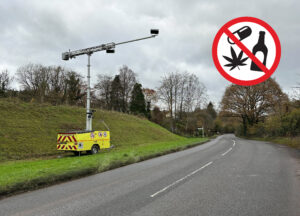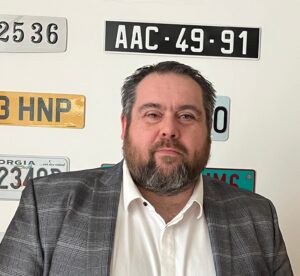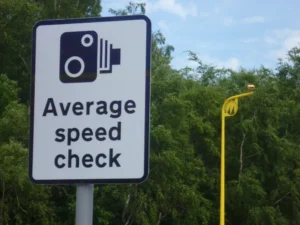ITS and enforcement company Videalert’s new Technology and Innovation Director says it’s important the industry does better in promoting the value of enforcement to a sceptical public.
In his first interview since the promotion was made public, Rob Kinch, who’s been given the role by Videalert’s owners Marston Holdings after working for the company for nearly 15 years, told Highways News that there is plenty of proof enforcement solutions make the roads safer, cleaner and less jammed.
“Take one example,” he said. “The very first unattended solution delivered by Videalert, at MDC Bradford, at the time was suffering significant delay and unpredictable operation of their public transport system as a direct result of unauthorised vehicles using the bus lanes and jamming the central road network. The deployment of the enforcement solution changed driver behaviour virtually overnight and both reduced the traffic volumes within the city, improving air quality and reducing the accident rate, and dramatically improved the public transport operation. These are common results to the deployment of a 24/7 unattended solution where high accuracy capture rates lead to direct traffic flow and air quality improvements.”
He insists that changes brought about this year necessitated by the Government’s Coronavirus restrictions would not have happened without the stick of enforcement being there, “More recently, Low Traffic Neighbourhoods and Safer School Street schemes where roads to access schools are closed during peak pedestrian times have a greater positive impact designed not only to keep our children safe while promoting physical exercise to walk to school and also improves the quality of the environment the travel through at the same time.”
Kinch says he’s passionate about making roads safer and would like to address the issue when the media portrays enforcement solutions as money making exercises. “Enforcement is a requirement of the restriction in place, therefore one should consider that if, for example, a Yellow Box was not required as every driver would naturally give way to other drivers to keep us all moving, then there would be no need for the Yellow Box to be enforced (Picture of Videalert enforcement in Kensington). One should consider what could be done to help change the behaviour of all drivers to comply with the rules and regulations.
“The truth is that we humans tend to follow the rules in the majority and there will always be that minority that do not. The impact of the actions of the minority in highly dense and highly populated environments is that one small action will have a large impact and therefore efforts must be applied to the whole system moving.”
In his new job, Kinch explained that he’s also keen to continue to develop the range of Videalert solutions and to underline the fact that they are about quality of life, “We have a great range of attended and unattended products which answer authorities’ needs in a range of ways, including for Clean Air and Low and Ultra-Low Emission zones, Congestion charging, Automated Car Parking solutions. Moving traffic enforcement such as Yellow Boxes, Banned Turns, One way streets, Bus Lane enforcement, Safer School Streets and Low Traffic Neighbourhood Schemes. It’s a lot more than just how fast people are going, it’s all about helping improve the minority of bad drivers’ behaviour.”
(Picture – Yellow Box enforcement in Kensington, Videalert)























